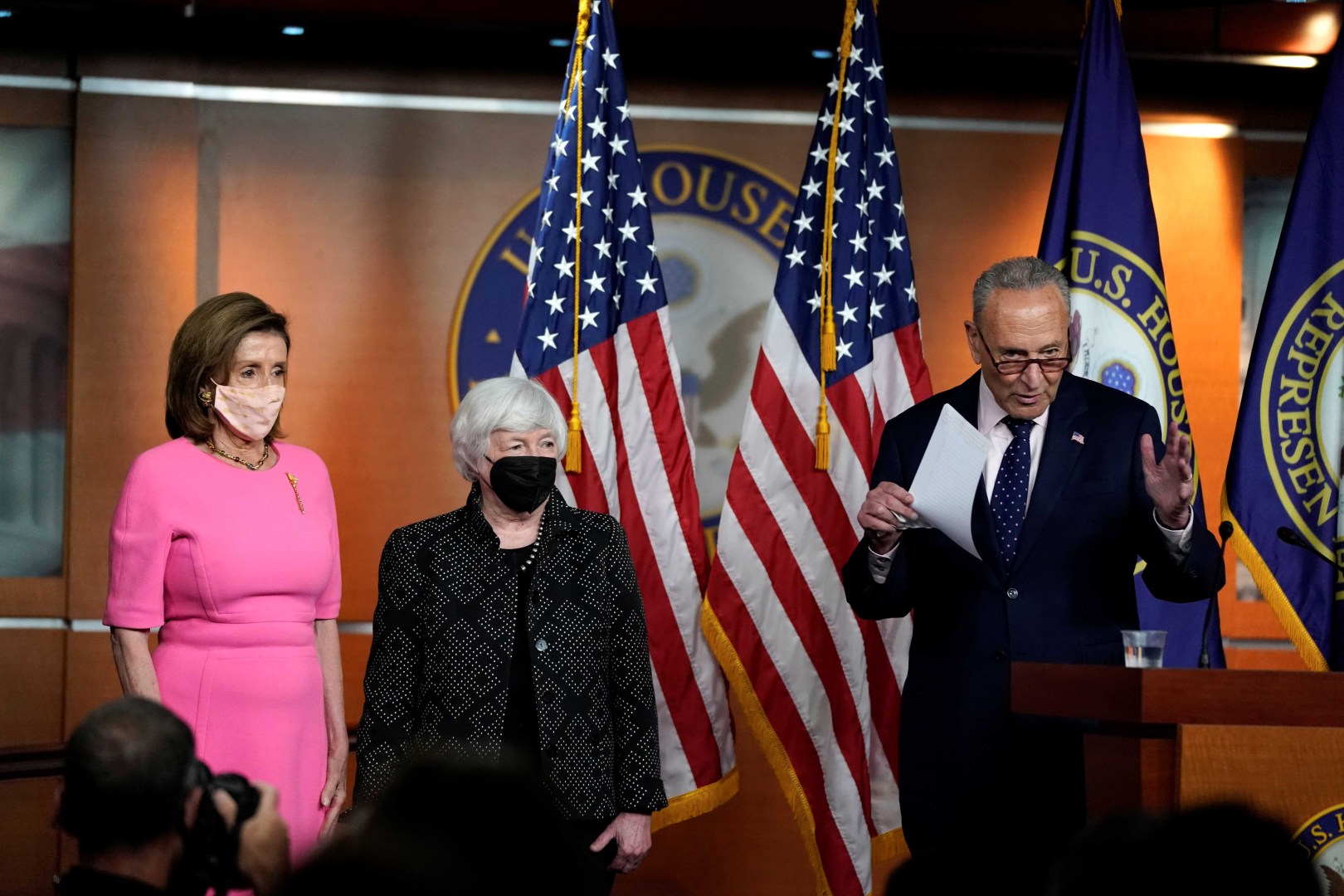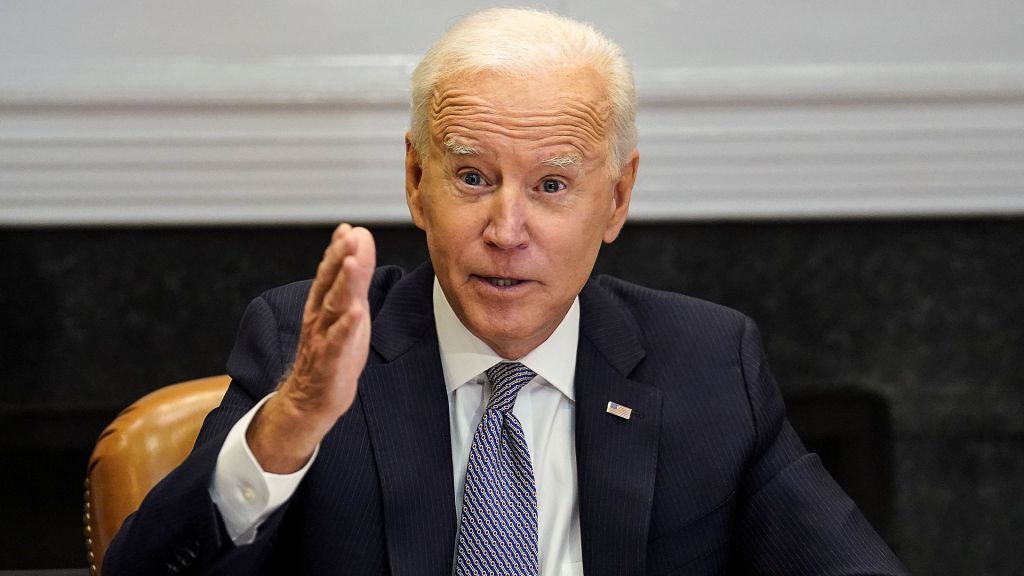
Rep. Nancy Pelosi, Speaker of the House: “As you know, we are moving in a closing some of the discussions that we’ve had on the legislation to honor the president of the United States vision for our country to build back better. And you probably have an announcement or shortly will that the budget committee is going to be marking up the bill in a timely fashion, in time for us to send it to the Rules Committee for consideration. To that end, a very important part of all of this is the… are the pay fors, how we want to build back better in a way that is fiscally sound.”
Sen. Chuck Schumer, Majority Leader: “The White House, the House and the Senate have reached agreement on a framework that will pay for any final negotiated agreement. So the revenue side of this, we have an agreement on. OK? Thank you. The framework, the agreement of a framework.”
Rep. Nancy Pelosi, Speaker of the House: “We are writing legislation. And when you’re writing legislation, you have to be specific. And this what took us a long way to a framework. Now, again, we always socialize what we’re doing and see among some things what what works better and what what our actual needs will be, we’ll get more estimates as to how much money comes in on certain things. But we know that we can cover the the proposal that the president has put forth to build back better, his vision for our country.”
“We have consensus in overwhelmingly, maybe 10 to one, 20 to one in our caucus as to these priorities, a higher percentage in the Senate, but we wanted to make sure that it was paid for and I’ve always said I’m a pay go person, pay as you go. Sometimes I have a little disagreement in my caucus with some who just don’t necessarily think we should do that. But I do. And we came to terms as to a framework of an array of, of, of agreements that we have depending on what the need is.”
“At the same time we’re finalizing on the outlays side, so if we need more, we need less, that will impact the choices we make there. But this was great progress, not in terms of it’s just that it’s writing bills and it takes time and you have to make decisions. And that’s what we did.”
“It’s not about a price tag. It’s about values, not dollars. And when we come to agreement on what people are for or what they would cut if they wanted to do this, what would you cut? But our goal is to have a very specific priorities, clearly presented with as close as possible results as possible.”
“We will bring our legislation forward that is ready, we can then say anything about what the framework was, the price tag we’re talking about the values contained therein. We are for the $3.5 (trillion) number, because that’s the number that the president and the Senate sent us. We marked up to that and now we’ll go to the next step. But I think we’re in a very good place.”






